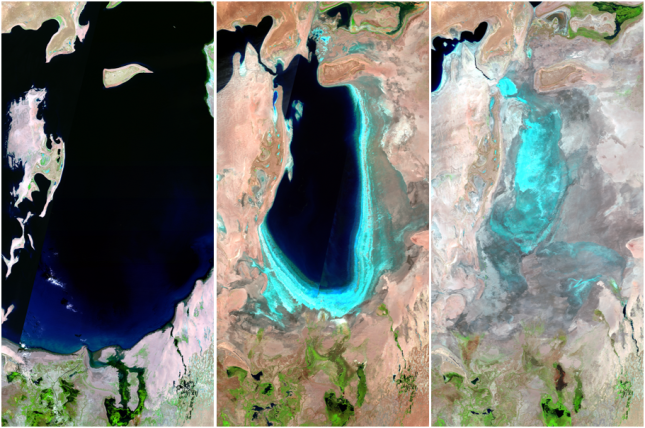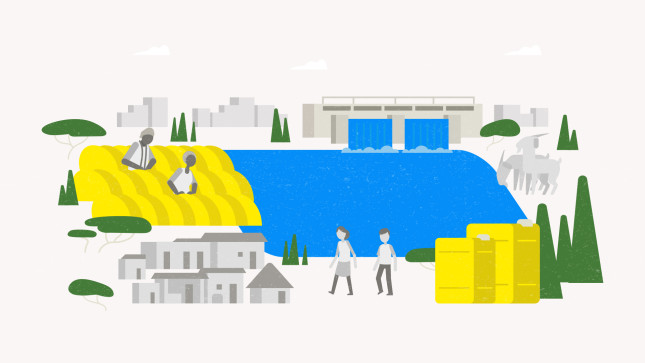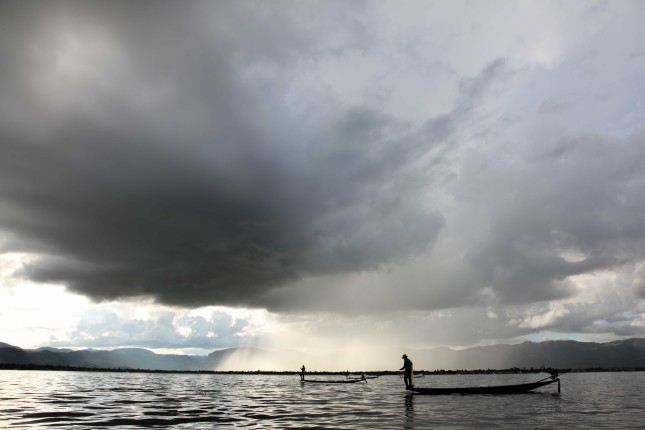-
A Look Downstream: Thoughtful Water Infrastructure Planning May Yield Economies of Flexibility
› Three big trends are coming, said Ken Conca, Professor at American University’s School for International Service at a recent Wilson Center event that explored the future of water. “We’ll be storing a lot more water,” he said. “We’ll be recycling a lot more water. And we’ll be thinking much more systematically and foundationally about flood risk.”
Three big trends are coming, said Ken Conca, Professor at American University’s School for International Service at a recent Wilson Center event that explored the future of water. “We’ll be storing a lot more water,” he said. “We’ll be recycling a lot more water. And we’ll be thinking much more systematically and foundationally about flood risk.” -
Tapping the Power in China’s Municipal Sludge
›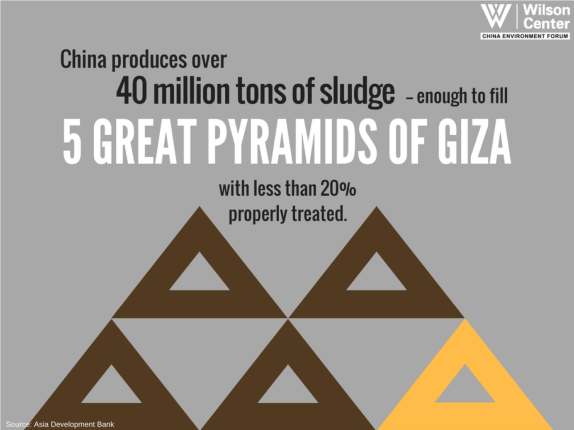
In September 2018, the Jinghu District People’s Court in Wuhu, Anhui Province sentenced 12 people from the Pol Shin Fastener Company between four months and six years in prison for committing serious interprovincial environmental crimes in Jiangsu and Anhui in 2016 and 2017. The court also fined the automobile hardware manufacturer 10 million yuan ($1.48 million). The crime? Dispatching ships and trucks to illegally dump 2500+ metric tons of highly acidic pickling sludge from steel production. Sludge—semi-solid waste emissions from industries and municipal water treatment plants—is yet another tough water and solid waste pollution challenge China faces.
-
The MEDEA Legacy: Darkened Data Shed Light on a Changing Planet and Environmental Security
›March 27, 2019 // By Evan Barnard
In 2018, California experienced its most destructive wildfires in history. Satellite imagery shared by NASA scientists helped firefighters track fires and map damage by comparing satellite images documenting changes to the Earth’s surface. These types of images existed for decades but were classified for military purposes until the government program MEDEA identified their potential benefit and advocated for public access in the 1990s. According to former National Oceanic and Atmospheric Association (NOAA) Chief Scientist and MEDEA member Richard Spinrad, “the systems that might be used for early detection of a missile launch may work equally well for detection of wildfires.”
-
Stopping Wildlife Trafficking Could Help Strengthen U.S. National Security
›
“The current administration needs to continue to work with nations, nonprofits, and the private sector to halt wildlife poaching, transit, and consumption,” said Chairman of the House Foreign Affairs Committee, Rep. Eliot Engel (D-NY) during his opening remarks at the recent Natural Security Capitol Hill Briefing. He and national security and conservation experts gathered for a panel discussion on how to combat wildlife trafficking and the effects of climate change on national security.
-
Water, Conflict, and Peacebuilding: A New Animated Short from the Wilson Center and USAID
›
Water brings us together. It is essential to the health of individuals, the vitality of communities, and the stability of nations. A new animated short from the Wilson Center and USAID’s Office of Conflict Management and Mitigation celebrates how working together to ensure safe and sufficient water supplies not only increases the resilience of communities, but also helps build peace in war-torn nations.
-
Lower Mekong Governments and Development Partners Seek to Improve Water Data Sharing
›
In the Mekong region, there is a general push to strengthen water data management and ultimately make evidence-based infrastructure development and water resources management decisions. The efforts of the region’s governments and development partners will ideally help mitigate the cumulative impacts of infrastructure development on water resources; save lives, livelihoods, and property from potentially devastating floods and droughts; and help natural resources be used sustainably. The challenge will involve navigating potential pitfalls related to technical know-how and harmonization of standards as they develop effective water data sharing platforms.
-
Mining Giant Behind Deadly Dam Collapse Took Lax Approach to Corporate Responsibility
›On January 25, 2019, an iron ore mining dam collapsed in Brumadinho, Brazil. The accident was probably the worst mining dam incident in the last three decades, according to the UN. So far, 203 people have been found dead and 105 are still missing, buried underneath the wave of almost 13 million cubic meters of mining waste. At least 305 kilometers of the Paraopeba river are now covered in toxic mud. Vale SA, the company that built the dam, is the world’s largest iron ore producer.
-
New Report Pushes for Greater Focus on Resilience in Feed the Future’s Work in Nigeria
›
“We are suggesting the tilt to resilience [in Nigeria] is not fully evident,” said Julie Howard, Senior Advisor with the Center for Strategic and International Studies’ (CSIS) Global Food Security Project. She spoke at a recent CSIS event launching a new report, Risk and Resilience: Advancing Food and Nutrition Security in Nigeria through Feed the Future. The report critiques the USAID global food security and hunger program, Feed the Future, which is attempting to expand on its work reducing poverty and malnutrition by adding a third priority: building resilience in the second phase of its campaign.
Showing posts from category environment.


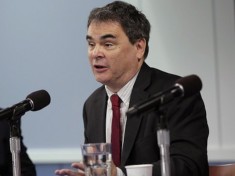 Three big trends are coming, said Ken Conca, Professor at American University’s School for International Service at a recent Wilson Center
Three big trends are coming, said Ken Conca, Professor at American University’s School for International Service at a recent Wilson Center 